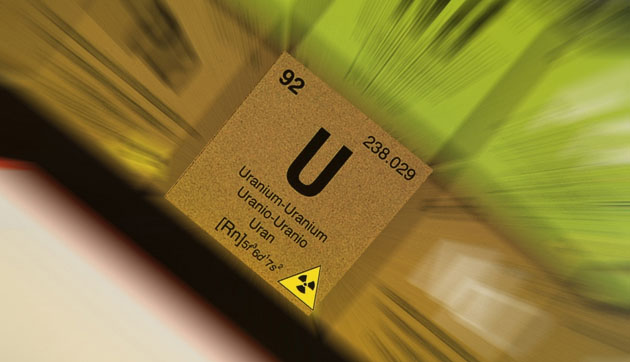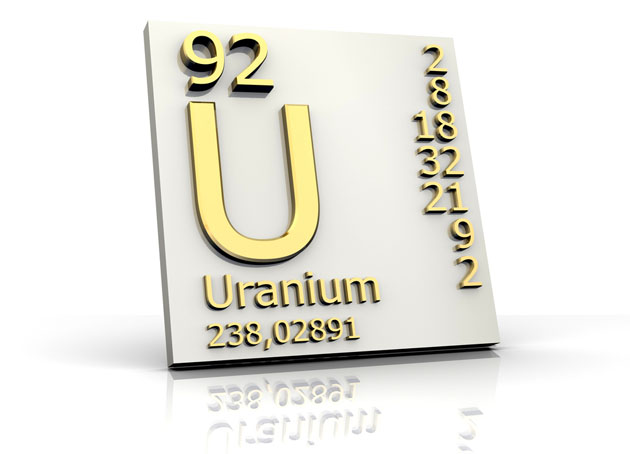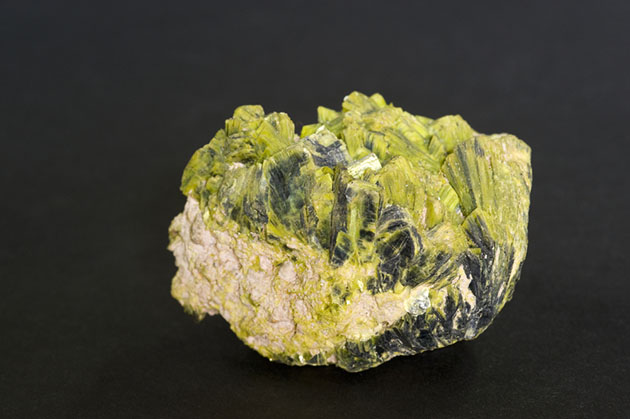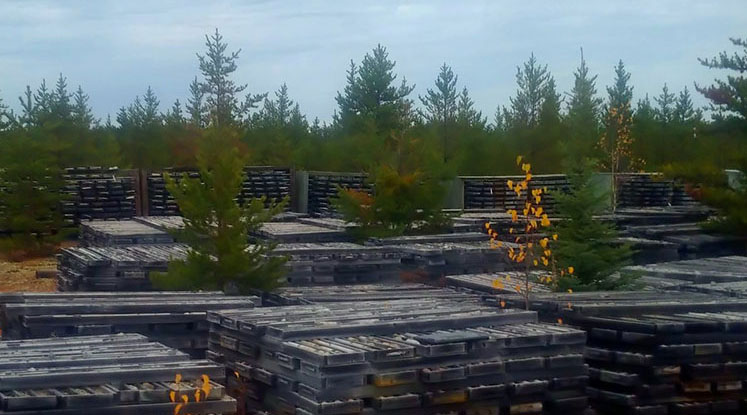The Energy Report: In 2010, the Encompass Fund, which specializes in resource commodity stocks, had a spectacular return of 60%. Last year, the return was negative. What is your plan for success in 2013?
Malcolm Gissen: We have a diverse portfolio of companies, including real estate, healthcare, fixed income and natural resources. We have typically emphasized resource companies, because they are attractive growth prospects. But, as we all know, the resource sectors have done badly for more than a year. We are being rather cautious as we reconfigure our resource portfolio, looking for strong companies, especially junior and intermediate producers with very high appreciation potential.
TER: How do you define "strong"?
MG: In our experience, the quality of the management team is extremely important. We closely examine the experience of company executives, their past successes and non-successes, as nobody's perfect all the time. The importance of being well capitalized cannot be over emphasized. We consider management's proven ability to raise cash. Location of the assets is important: Geopolitical upheavals around the world are impacting mining and energy companies. The political factors range from overthrowing governments to altering tax and royalty rates and rewriting concession laws.
TER: What else do you look at?
MG: The investor base. We invest in companies that are supported by committed individuals or institutional investors. Strong support from brokerage firms helps a company to raise capital. Companies with CEOs who have access to cash or prior successful experience raising significant amounts of capital have strong advantages at a time when it is very challenging for resource companies to raise adequate capital.
TER: Do exchange-traded funds (ETFs) play a role in your strategy?
Marshall Berol: There are more than 1,200 ETFs on the market. They can be worthwhile, but Wall Street is slicing and dicing sectors and industries into really thin tranches to create somewhat non-transparent indexes. ETFs are not per se better than mutual funds or individual stocks. Investors must look under the hood of any ETF to see if it is investing in stocks, futures contracts or bullion. With that said, we do look at ETFs and have commodity ETFs in our separately managed accounts.
TER: Let's talk about the energy resource space. How do you parse it?
MG: It's going to take at least two to three years for natural gas prices to recover, largely because of increased production in North America. And because coal generates approximately double the pollutants in the atmosphere in producing electricity than natural gas, we believe that North American utilities will continue to close down coal plants. We also believe that because countries around the world are increasingly concerned about the pollution that comes from their power plants, they will be expanding their nuclear power programs. This is one of several reasons why we are bullish on uranium and the companies producing or soon to be producing uranium.
TER: Why?
MB: Simply put: Supply and demand.
MG: There are over 60 nuclear power plants under construction today. In 2011, 143 million pounds (143 Mlb) of uranium of were produced worldwide. Globally, 165 Mlb of uranium was consumed. The difference between consumption and supply was provided by the decommissioning of Russian nuclear warheads pursuant to a 1993 treaty, which expires at the end of 2013. Globally, utilities are looking to find new sources to provide uranium that they're going to need for the next decade and beyond.
TER: Are there any companies that you favor in that sector?
MG: There are not many producers of uranium on the planet. It's a very small community. Uranium Energy Corp. (UEC:NYSE.MKT) has solid uranium producing projects in Texas. We expect that it will increase production soon, as more facilities come on-line. The company has acquired significant land holdings in South America and in Wyoming, Arizona and New Mexico.
MB: We own Ur-Energy Inc. (URE:TSX; URG:NYSE.MKT). It recently completed a permitting and licensing phase in Wyoming and is under construction. Once the investing public realizes that Ur-Energy is in production, the stock price should improve.
Another junior that we like in the uranium space is a Canadian operation, Strateco Resources Inc. (RSC:TSX). It is located in northeast Canada and has recently had favorable decisions on permitting and licensing. It has drilled into a very high-grade deposit that could attract acquisition by a larger company.
We own European Uranium Resources Ltd. (EUU:TSX.V; TGP:FSE; EUUNF:OTCQX), which has several exploration and development projects in Europe. Europe is desirous of moving toward self sufficiency with regards to uranium production.
Global X Uranium ETF (URA:NYSE) is an index of uranium producers; its largest component is Cameco Corp. (CCO:TSX; CCJ:NYSE), which is a very successful company. The second-largest component in the ETF is Paladin Energy Ltd. (PDN:TSX; PDN:ASX), which is correcting its production problems. Another top-five holding in the ETF is Uranium One Inc. (UUU:TSX), which is going private. A Russian state-owned company is buying the balance of Uranium One it doesn't currently own in the next 30–60 days. At that point, the Global X Uranium ETF will be rebalanced.
TER: What about oil and gas?
MG: Magnum Hunter Resources Corp. (MHR:NYSE.MKT) is high on our list. It is a Houston-based oil and gas company with projects in Texas in the Eagle Ford shale, as well as the Marcellus and Bakken shale areas. It expanded production in 2012 from 10,000 barrels of oil equivalent per day (10,000 boe/d) to 18,000 boe/d. The company is projecting 23,000–25,000 boe/d in 2013. In addition, it owns pipelines that are likely to be spun off into a separate company. Down the road, Magnum will be an attractive acquisition target. We like the Magnum CEO, Gary C. Evans. He started a prior company some years ago, built it up through acquisition and sold it for in excess of $2 billion ($2B). It was a very profitable deal for the shareholders.
MB: Evans has also started GreenHunter Energy Inc. (GRH:NYSE.MKT), which is in the pick-and-shovel aspect of oil and gas development. GreenHunter manages all the water aspects for oil and gas companies. Water is essential to hydraulic fracturing (fracking). After being pumped, the water needs to be disposed and equipment decontaminated. GreenHunter has been built up through acquisitions, and because of Gary Evans' involvement, it's a very compelling situation.
MG: Going back to our earlier discussion about geopolitical considerations: Fracking is regularly in the headlines as people ask whether it's beneficial or harmful. The oil and gas industry in Canada has engaged in fracking for more than 40 years without any demonstrated detrimental effects, but it has become such a hot-button issue with environmentalists that the politics are certainly something to monitor. Natural gas is plentiful in North America because of fracking, and that has resulted in much lower heating bills for American consumers. Unfortunately in the United States, activists have created an emotional issue out of fracking. If reasonable regulations are adopted and enforced, the energy industry can comply with those regulations and continue its operations, and public interests can be safeguarded. But if elected officials bow to pressure and reduce fracking activities, the amount of oil and natural gas will constrict. That will increase the price of gasoline and all forms of gas, of course, and also prevent the U.S. from becoming energy self-sufficient. Reducing fracking cuts both ways.
TER: Have you seen any promising juniors in the coal sector?
MG: We like the coal space because coal generates electricity all over the world until the cost of alternative energy can be significantly reduced. But coal also faces environmental issues in the United States that should continue to drive the export of coal, particularly to China. New regulations and restrictions could continue to reduce coal as a source of energy power. However, in the meantime, from time to time one can buy a coal company when the price is down, for company reasons, or industry reasons, and ride it back up.
We own a Canadian coal company operating in South Africa, Forbes & Manhattan Coal Corp. (FMC:TSX). South Africa suffers from electricity shortages, which affect manufacturing and mining operations. Forbes & Manhattan has new management. We're watching the developments closely.
TER: What about hydroelectric power?
MG: China Hydroelectric Corp. (CHC:NYSE) operates 26 small hydroelectric plants in several different provinces in China, totaling about 550MW. The stock price is about $2/share; two years ago it was $7/share. The price fell because China Hydroelectric was overleveraged with debt and had operational problems. New management has turned the company around. And 2012 was a good rain year in China. Rain, of course, is important for hydroelectric power generation.
TER: Geothermal?
MB: Calpine Corp. (CPN:NYSE) primarily generates electricity from natural gas plants. It has modern, efficient natural gas plant operations. It is also the largest generator of geothermal energy in the United States (about 40% of the total geothermal power generated). It had some serious financial difficulties a few years ago, which it has resolved. Alterra Power Corp. (AXY:TSX) is a small junior with geothermal and wind operations in Canada and elsewhere in the world. We're not invested in Alterra, as we have been off and on with Calpine.
TER: What about upstream companies involved in electricity generation?
MG: We invest in rare earth elements (REEs), which are necessary for the production of solar equipment. REEs have tremendous technological advantages and new applications are being developed all the time. We like Avalon Rare Metals Inc. (AVL:TSX; AVL:NYSE; AVARF:OTCQX). It has a large project with more heavy metals than other REE companies. The heavy metals are harder to find than the typical rare earths; they're much more valuable, the prices are higher, and Avalon is moving ahead in the development of its project.
We own Dacha Strategic Metals Inc. (DSM:TSX.V; DCHAF:OTCQX), a Canadian company. Dacha has been acquiring REEs from the Chinese and storing them, waiting for prices to rise.
We are invested in American Vanadium Corp. (AVC:TSX.V). It has an exciting project in Nevada. Vanadium has applications with wind and solar energy that can make these alternative sources of energy available 24/7. American Vanadium is in negotiations with large Asian companies on a joint venture to develop large-scale vanadium batteries that will make wind and solar energy available for U.S. utilities fulltime.
MB: Wind and solar stocks are wonderful in concept, but have not performed well, generally. Our clients own an excellent alternative energy provider called Algonquin Power and Utilities Corp. (AQN:TSX). Algonquin serves Canada and the Northeast United States with thermal and hydroelectric energy. It has been a terrific performer, with better than 100% returns. It was paying a 6% dividend, which is now at 3.5%, because the stock has performed so well.
TER: You've been holding GeoPetro Resources Co. (GPR:NYSE.MKT) for a while and its stock price has been volatile. Can you assess its current prospects?
MB: GeoPetro has four different projects primarily related to natural gas. It has not been able to move forward on them, because natural gas prices are low, and it does not have the financing to proceed. We are sticking with the company because the projects are promising. The price of natural gas has improved from a low of $2 per thousand cubic feet ($2/Mcf) to $3.50-4/Mcf now. If it keeps heading higher, that will be extremely beneficial for GeoPetro. It also has a very attractive oil project in California, near Occidental Petroleum's huge discovery.
TER: Any final thoughts?
MG: There are two Canadian energy companies that used to be energy trusts that we think are very attractive for long-term investors, especially those who want a more conservative investment that produces income. Crescent Point Energy Corp. (CPG:TSX) and Baytex Energy Corp. (BTE:TSX; BTE:NYSE) enjoy significant production and very solid dividends.
TER: Thank you for your time.
MB: It's a pleasure.
MG: Thanks, Peter.
Malcolm Gissen founded Malcolm H. Gissen & Associates Inc., an investment advisory services firm, in 1985. Whereas early in his career the firm specialized in financial planning and in funding private companies, since 2000, the firm has focused on money management. He has invested in all asset classes and developed expertise in resource companies over the last 10 years. Gissen received a Bachelor of Science degree from Case Western Reserve University and a Juris Doctor degree from the University of Wisconsin. In 2006, Gissen and Berol co-founded the Encompass Fund, a no-load mutual fund, and are the portfolio co-managers.
Since 2000, Marshall Berol has been the chief investment officer of Malcolm H. Gissen & Associates Inc. In addition, for more than 20 years, he has owned the investment firm BL/SH Financial. His investment management experience has focused primarily on investments in publicly traded companies. He did his undergraduate work at the University of California, Berkeley, and received a a Juris Doctor degree from the University of San Francisco School of Law. He was in the private practice of law before entering the investment management business.
Want to read more Energy Report interviews like this? Sign up for our free e-newsletter, and you'll learn when new articles have been published. To see a list of recent interviews with industry analysts and commentators, visit our interviews page.
DISCLOSURE:
1) Peter Byrne of The Energy Report conducted this interview. He personally and/or his family own shares of the following companies mentioned in this interview: None.
2) The following companies mentioned in the interview are sponsors of The Energy Report: European Uranium Resources Ltd. and Ur-Energy Inc. Interviews are edited for clarity.
3) Malcolm Gissen: I personally and/or my family own shares of the following companies mentioned in this interview: Encompass Fund, Uranium Energy Corp., Magnum Hunter Resources, Avalon Rare Metals Inc., American Vanadium Corp., Algonquin Power and Utilities Corp., GeoPetro Resources Co. and Baytex Energy Corp. I personally and/or my family am paid by the following companies mentioned in this interview: None. I was not paid by Streetwise Reports for participating in this interview.
4) Marshall Berol: I personally and/or my family own shares of the following companies mentioned in this interview: Encompass Fund, Uranium Energy Corp., Avalon Rare Metals Inc., Forbes & Manhattan Coal Corp., Dacha Strategic Metals Inc., American Vanadium Corp. and GeoPetro Resources Co. I personally and/or my family am paid by the following companies mentioned in this interview: None. I was not paid by Streetwise Reports for participating in this interview.





























































